“Why stop now when tomorrow she could be there?” Max Hubacher on Sachertorte at Zurich Film Festival
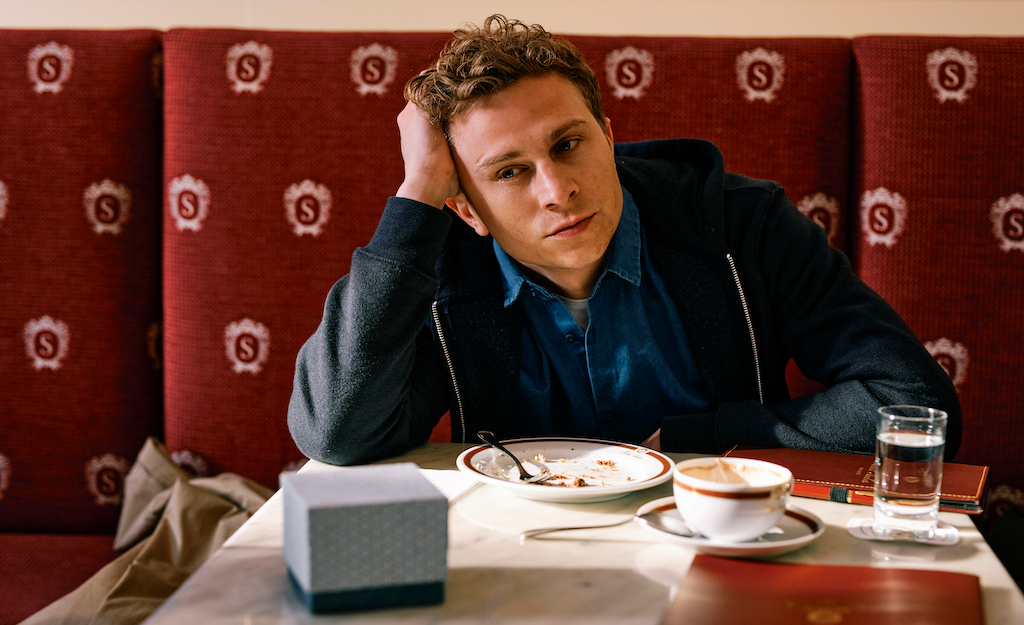
At this year’s Zurich Film Festival an Amazon Prime Original proved that romantic comedies can still bring something new to the table – in this particular case a piece of Sachertorte.
Because the only thing Karl knows about the girl he fleetingly met on her trip to Berlin is that she goes to Vienna’s Café Sacher every year on her birthday, the young man decides to wait for her at the prestigious coffee house. After all, the odds are 1 to 365, the probability increasing with each passing day.
The leading man in this Austrian-German production is Max Hubacher, whom international audiences may know from 2017’s war drama, The Captain, which premiered in Toronto, or queer football romance Mario.
We met the Swiss actor in Berlin and spoke to him about his neutrality in the neighbouring countries’ disputes, the input he had on his character’s display of emotions and whether he’s become sick of the titular chocolate cake yet.
Thank you for taking the time to speak to us. To start off, could you tell us how the collaboration on this project come about: did you have to audition or were you offered the role? Did you receive the whole script?
Yes, luckily I received the script. It was a rather late casting process – as far as I know a lot of people had been auditioned and, towards the end, they wanted to try something new – a new direction – and only then thought of me. I was a little unsure at the beginning, because I don’t know the format that well and I don’t normally feel at home in that genre. Romantic comedies are not necessarily something I watch in my free time. But I read the script and thought it was extremely funny. And not only from that perspective: “Oh, I can see people laughing at this part or that”, but I myself found it funny.
Then there was the audition, and I don’t know if Maeve had been cast by that point, but it worked really well with her.
What I do after an audition is I try to put it behind me and not think about it anymore until I hear back, and usually it takes a while for that to happen. But promptly, after three days, there was an answer. I was overwhelmed because I hadn’t given much thought to whether I wanted to do it, but I had to make a decision fast. I talked to a bunch of people in that time and it kind of crystallised that, exactly because I was so nervous and scared, I had to do it. I’ve been nervous before, with other films, but never as much as with this one. And that unknown or whatever it was that frightened me was exactly why I convinced myself I had to do it.
So you already tested with Maeve at your audition?
Yeah. We met at the audition and I noticed how easy it was, how it just worked. It was extremely comfortable with her, really cool, as far as you can tell in such a short amount of time. I mean, rarely there is an audition when you think: “It’s not because of how I played in there whether I get it or not” – more often you tend to question what you did. So, I thought it was okay, but apparently the others found it very cool, which surprised me.
Much of the film’s humour stems from the culture clash between Germany and Austria. How was it for you as a Swiss national – a neutral party, so to speak?
I think it is probably easier. I don’t know if I had been German – I mean some of the gags are at the expense of Germans – if I would have perhaps taken personal offence… But it’s often like that with German parts, like when I played a Nazi officer, or rather someone who impersonates a Nazi officer, it was interesting because, as a Swiss, I had a different distance to the history and it can be helpful.
The funny thing here was that in many scenes where Karl doesn’t understand what is being said, I, of course, understood. Especially the character from Vorarlberg – that dialect is so close to Swiss German. I would say it was almost the most difficult scene to genuinely pretend not to understand what he was saying, when in reality I was the only one on set who did. And Karl sticks to his language or is confused, but me, I always enquire about individual terms or phrases, particular definitions and dialects. I love that; it interests me, the linguistic diversity.
You lived in Germany for a while, right?
Yes. I still live in Germany – for eight years now. Yes, I have some point of reference. Overall, the Swiss are not particularly fond of the Germans but the Austrians even less so. It actually shocked me how far that went.
So yes, I am familiar with it, and I notice it, when I go home after being in Germany for a while and have some phrases that I tend to try to translate into Swiss. People are like, “How are you speaking? Lose that immediately!” or “Don’t forget your mother tongue!”.
Of course, Sachertorte is a romantic comedy, which comes with some predefined ideas, but what’s interesting is that it’s not necessarily love that changes Karl here. Rather, from the minute he sets foot into Vienna, he becomes much more autonomous. How did you tackle your character’s development?
Yes, the arc – the conflict is not particularly high stakes. I always tried to find a way to the core: “What is it about for him?”. For me, moving to Vienna wasn’t just about this woman, but a good pretence to find a new life. Because he is softly kicked out of his shared flat, his previous stability is uprooted. I think subconsciously he looks for an excuse to start something new, away from Berlin, meet new people, and he sticks to this plan because it gives him a cause, a justification. That was my approach. We know this desire for a new environment. It may come through studies, through love or a new job in a different place, but that is a means to an end. Really, it is you who wants to go somewhere new.
But still he schedules his new life around his daily afternoon appointment.
Yes, and I don’t think I have ever seen a film with this many montages. Of course you have to ask yourself, “How long does this hope really last? And, how long is it still a pleasant thing for him?”. At some point it is just a routine to hold on to and if you’ve done something for such a long time – you can’t just abort the mission. Why? Why stop now when tomorrow she could be there? To stick to the plan is possibly the only thing that gives him a little bit of stability. That is how I applied it.
In the first draft of the script I was unsure about what he wants in life. What kind of guy is this? He seems pragmatic and I like pragmatic characters – characters that aren’t overly dramatic.
But still… As preparation, I watched romantic comedies. And one of those was The Holiday, with Jude Law and Cameron Diaz, and I liked this one very much. I liked that Jude Law is the softer, the more sensitive one of the two. So I called Tine, the director, and asked if we could implement some things to establish that Karl does get emotional, that he can be touched by things and is not just a pragmatist dashing through life.
There was one point, where Karl is told he has stars in his eyes, that was already in the script, but then we decided to show that when he is at the opera, how moved he is. And also when he holds his monologue of love at the end, that he is actually caught by his own words.
Because you mentioned the montage: how much cake did you have to eat on-set?
Woah. Well, altogether… I never had to eat the entire cake, fortunately. But I would say, accumulated, about 50 cakes or so. The good thing was that we tried to avoid food waste, of course, so there was always someone from the crew – like, “Are you still going to eat that?” and I was literally, “Please!” and they could finish it.
And can you still stand it?
As a gag, someone gave it to me now, for my birthday a couple of weeks ago. And I ate one bite but then I was done. The funny thing is, I am not one for sweets at all – I am a savoury type. What I found cool was that Karl doesn’t praise it to the skies. It’s a really solid cake, I agree with Karl, it’s delicious, but it’s not the best cake I ever ate. That, of course, is my Mum’s cake. Yeah, I have to say that.
Selina Sondermann
Sachertorte is released on Amazon Prime Video on 18th November 2022.
Zurich Film Festival is on from 22nd September until 2nd October 2022. For further information visit here.
Watch the trailer for Sachertorte here:

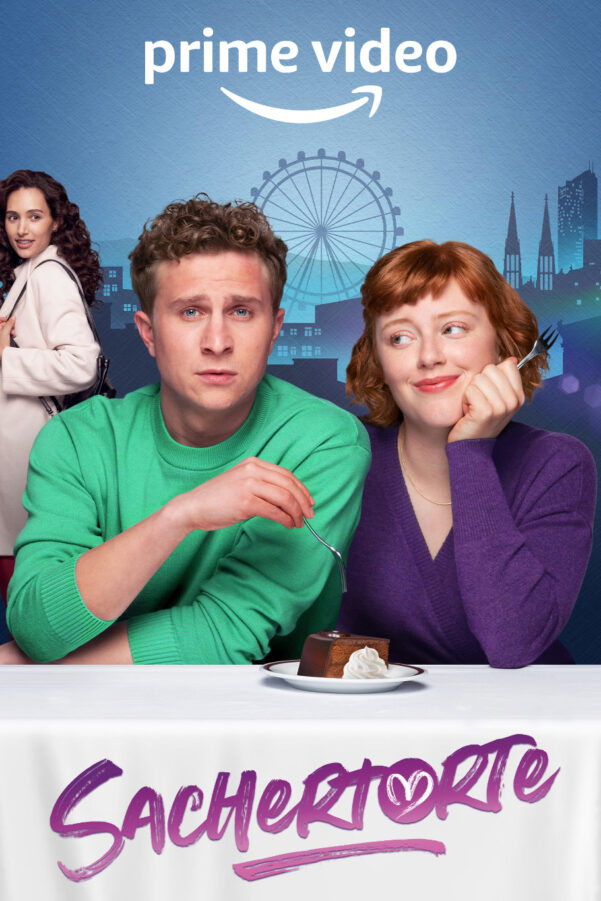
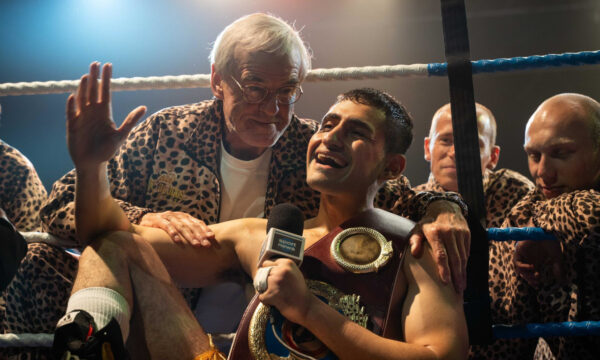
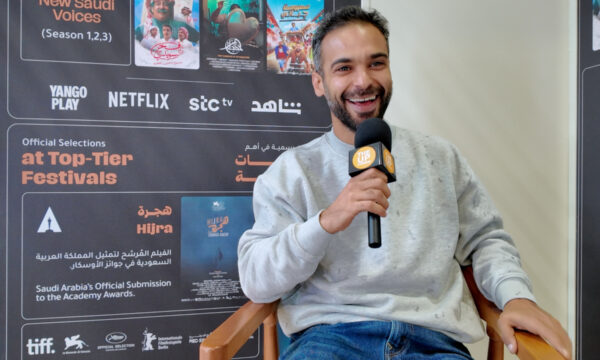
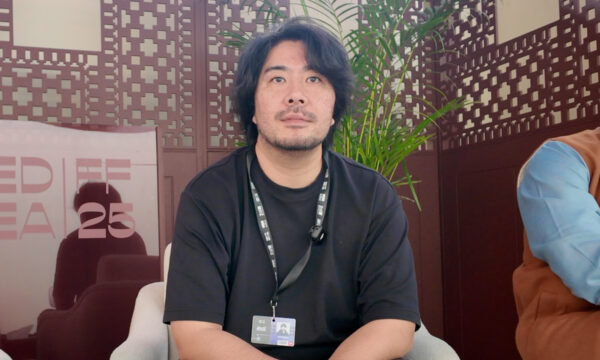
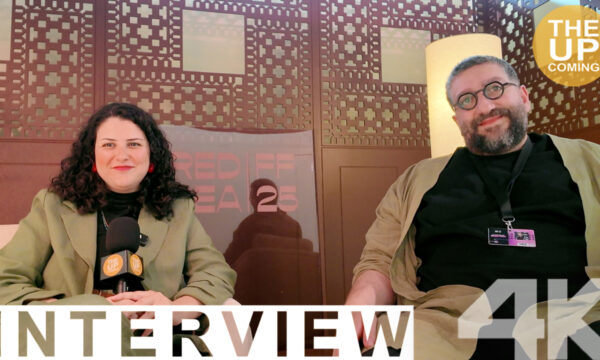

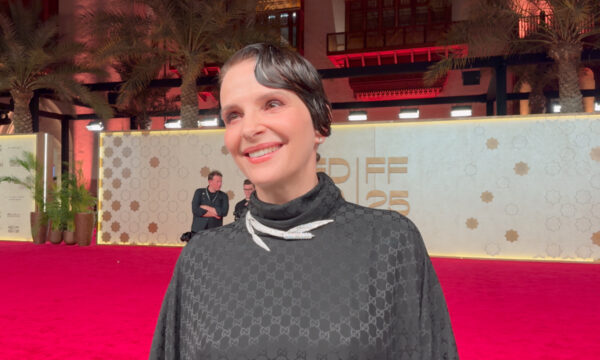
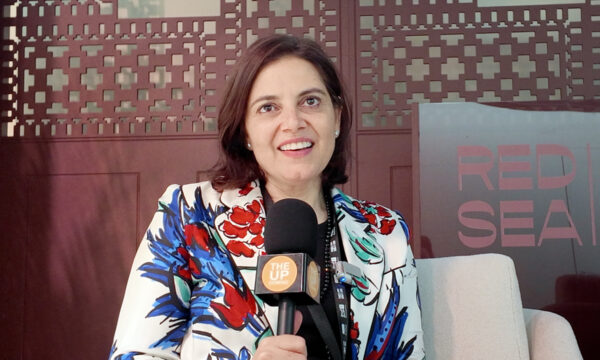
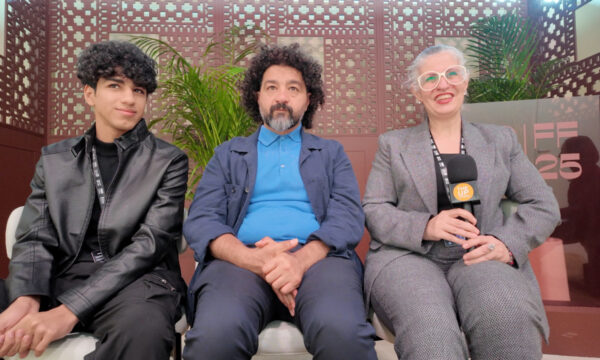
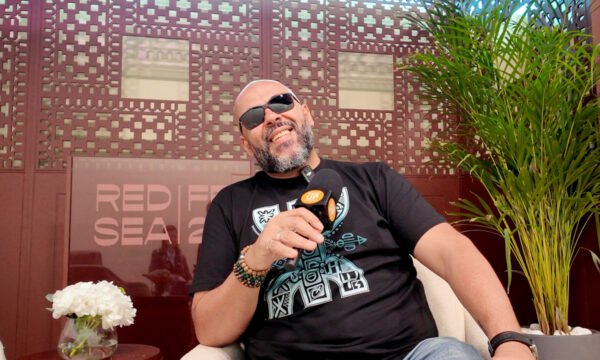


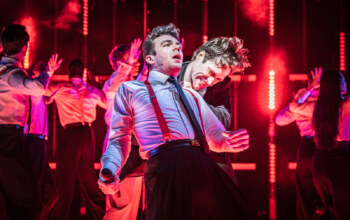
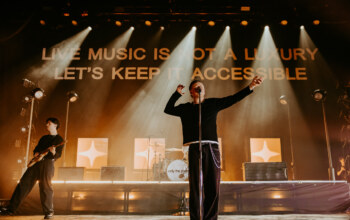
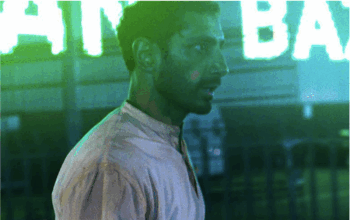
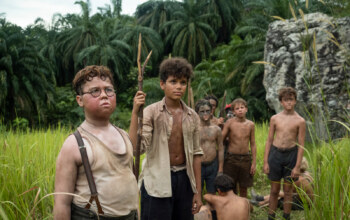
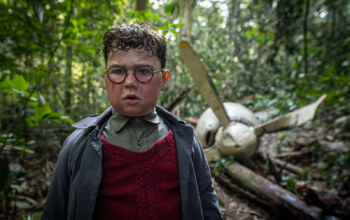
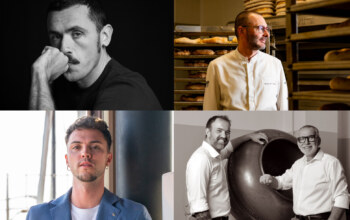
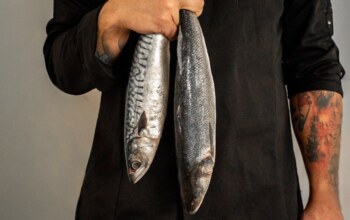



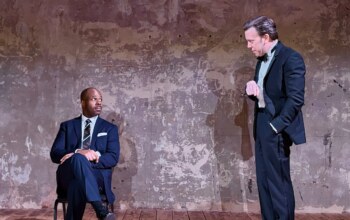


Facebook
Twitter
Instagram
YouTube
RSS